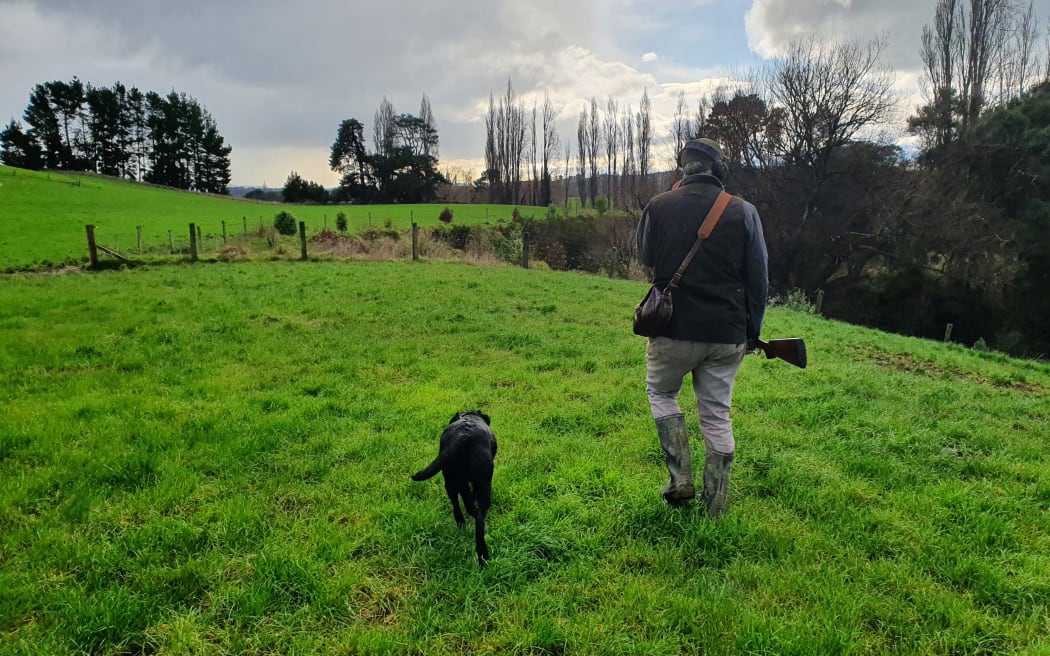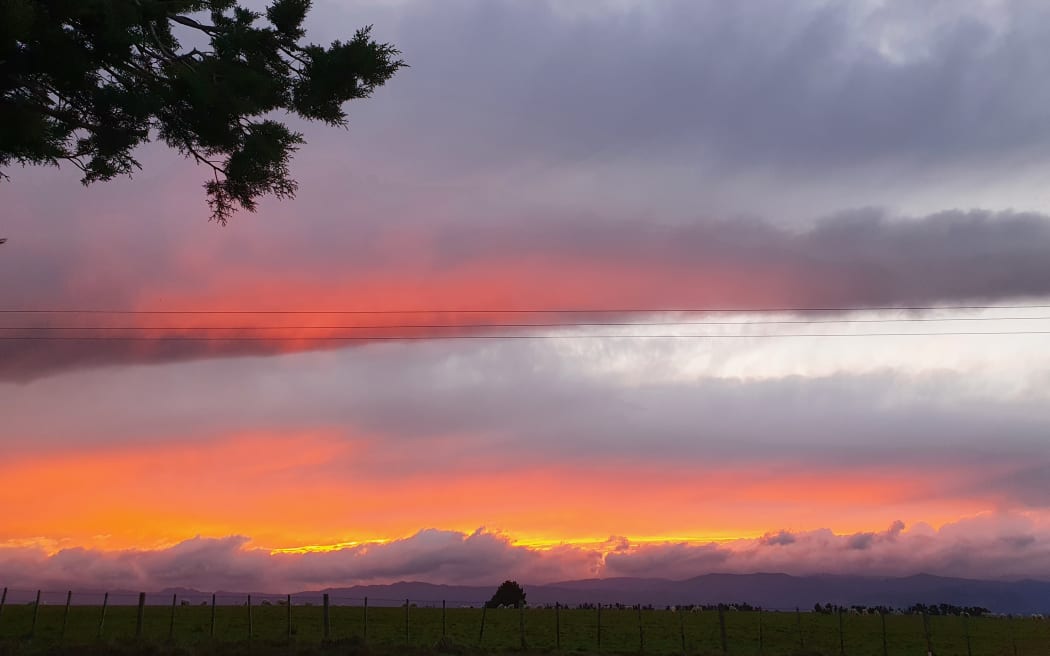Extremely wet conditions dominate the farming scene in nearly every region this week. Softer salad vegetables will be in short supply as they don't like the wet, nor hail.
Northland has dried out a bit this week. There's not too much mud and grass is still growing. There's really been no settled frost at all. That's good and bad ... farmers like to have the frosts early because they need the tropical kikuyu to stop growing to let the rye grass and clovers come through.
It's been super wet around Pukekohe. There's been a total of 205 millimetres since the end of May. Growers took the opportunity of a dryish Thursday to plant or sow their crops despite soil conditions remaining wet and heavy. Early onion crops are now above ground and competing with uncontrolled weeds.
Waikato is floating after having five months of extremely dry conditions. Between 300 and 400mm has fallen in the past three weeks. A dairy farmer we caught up with said it's just winter and farming, but he has gone through two weeks of extra feed in the past fortnight to keep his cows well fed.
Bay of Plenty has also had a lot of rain, making the final couple of days harvesting kiwifruit very stop start. The crop is 8 percent lower than early forecasts which means export tray numbers will be similar to last year, rather than 15 million more. About 60 percent of the crop's been exported. Earlier in the week horrendous winds meant there wasn't an upright rubbish bin in sight at Ōhope.

Photo: RNZ/Sally Round
River flats that flooded last week in parts of King Country are now drying out a bit. That hasn't happened for several years. Grass is trying to grow and ewes are being scanned but it's too early for results. The weather's making it hard for shearers to get through second shear ewes.
It's been cloudy and miserable for a sharemilker in Taranaki ... he moved farms earlier this month and while the cows are dried off, he's doing a few repair jobs ... fencing and getting the calf shed prepped for spring time. It hasn't been overly cold and there's still reasonable grass growth. Another farmer says the ground's saturated after all the showers and there's some pugging damage in all the wet.
Gisborne is over the rain but vege growers are pleased they missed the hail that hit some crops in Pukekohe and the lower North Island. It's wet underfoot and even small amounts of rain are making paddocks difficult to get onto. There will be a shortage of lettuce and other salad crops for a while. Broccoli hasn't been quite so affected by rain but the quality is only average with rot affecting some heads. Supplies will be inconsistent over the next few weeks; planting was delayed earlier in the season, and now wet weather's affecting quality but our grower says there will still be good value vegetables if you look for the right product.
It's been fairish weather for pruning this week at a Wairarapa vineyard ... the region's winegrowers have a Whats App group going to share labour around. The vintner we spoke to is excited about their upcoming release of new wines over Matariki. The wind returned with gusto at the end of the week.

Photo: RNZ/Sally Round
Manawatū has been very wet, but it's more inconvenient than anything else. A consultant we spoke to says some farms are still overstocked. He says where clients have reduced numbers they've seriously lifted per head performance which is a much better way to go. And, if there's too much grass in spring he reckons lock it up for deferred grazing in autumn ... like earlier times.
Lots of trees are down after a wet and windy week in Horowhenua. Many farmers didn't have the grass cover they'd hoped for after the dry autumn and now it's getting trampled into the ground. Despite the high dairy payout chins aren't up. In fact some older farmers are feeling a bit beaten up with so many new regulations to deal with all at once so are thinking about leaving farming.
Across Cook Strait and pruning is underway for apples and kiwifruit in the Tasman region. Kiwifruit growers are still waiting for some good frosts to get more leaves to drop. It's been wetter and warmer than normal. Apples are holding up well in cool stores so good quality fruit is still available for export.
Marlborough's had a finer week after two pretty wet ones. Temperatures are dropping. Grapes are getting pruned and there seems to be enough labour for that ... RSE workers are back filling vital roles.
On the West Coast it's chilly, the snow is back with a vengance. It's very deep in the back country, probably down to at least 700 metres. Once the weather clears, which is meant to be next week, and turns easterly, there will be some cracking frosts. Winter traditionally starts after the shortest day. Our farmer contact stopped milking a little earlier than normal and he's pleased because he's got good feed ahead of his cows as a result.
There have been good steady bull sales in North Canterbury and heavy money's being paid. Some are fetching up to the $20,000 mark, a lot getting $10,000. They'll head all over New Zealand to new pastures.
Central Otago saw some sun on Friday, there's snow around but our farmer in Oturehua says it's not winter yet. There's no perma frost and the sun's hot. He says you don't want to be driving in posts for fences because the ground is dry and hard. Normally it's frozen hard ... this season it's still dry from autumn.
There was blue sky in Southland on Friday, but like a lot of the country, it's been very wet. Over 100mm fell at the start of the week. A sheep and beef farmer said he'd moved stock onto firmer drier paddocks and off crops until things dry out. Cattle are moving off to the meat works he says, but it's still not the usual flow.

